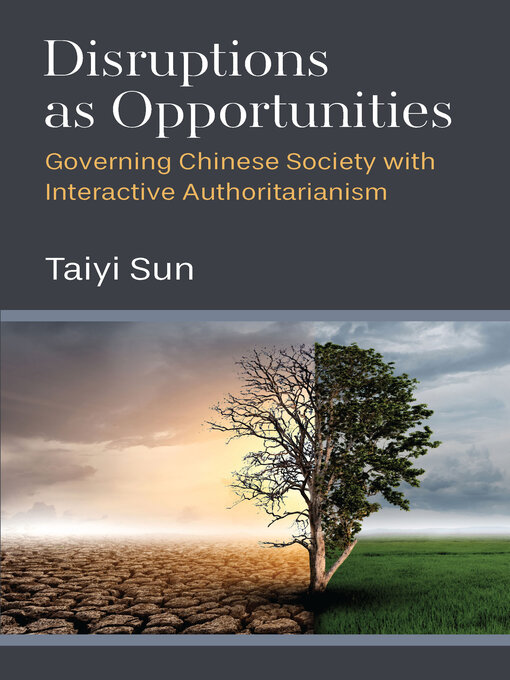- Food & Cooking
- News & Politics
- Celebrity
- Travel & Outdoor
- Business & Finance
- Fashion
- Art & Architecture
- Culture & Literature
- Family & Parenting
- Hunting & Fishing
- Tech & Gaming
- Health & Fitness
- Crafts & Hobbies
- See all
-
Description
-
Details

Kindle Book
- Release date: March 1, 2023
OverDrive Read
- ISBN: 9780472903306
- Release date: March 1, 2023
Open EPUB ebook
- ISBN: 9780472903306
- File size: 1394 KB
- Release date: March 1, 2023
Formats
Kindle Book
OverDrive Read
Open EPUB ebook
subjects
Languages
English

-
Details
Publisher:
University of Michigan Press
Kindle Book
Release date: March 1, 2023
OverDrive Read
ISBN: 9780472903306
Release date: March 1, 2023
Open EPUB ebook
ISBN: 9780472903306
File size: 1394 KB
Release date: March 1, 2023
-
Creators
- Taiyi Sun - Author
-
Formats
Kindle Book
OverDrive Read
Open EPUB ebook
-
Languages
English
Why is availability limited?
×Availability can change throughout the month based on the library's budget. You can still place a hold on the title, and your hold will be automatically filled as soon as the title is available again.
The Kindle Book format for this title is not supported on:
×Read-along ebook
×The OverDrive Read format of this ebook has professional narration that plays while you read in your browser. Learn more here.
